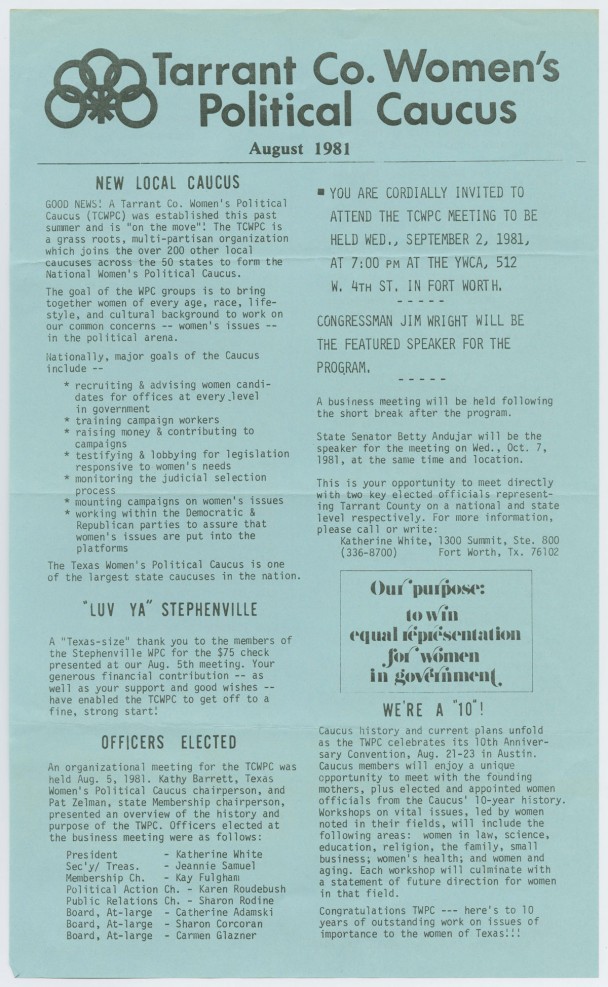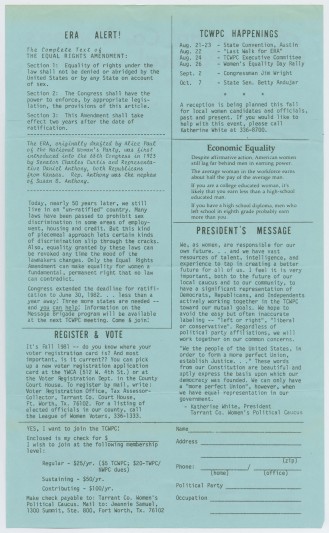
Front of a newsletter from the Tarrant County Women’s Political Caucus, August 1981, from the Lanny Hall Collection. UNTA_AR0177-066-001_01
In the summer of 1981, a group of Texas ladies banded together to form the Tarrant County Women’s Political Caucus (TCWPC). This local chapter became a member of the Texas Women’s Political Caucus, and subsequently the National Women’s Political Caucus.
Officers were elected during a business meeting in early August, and included Katherine White as President, Jeannie Samuel as Secretary/Treasurer, Kay Fulgham as Membership Chairperson, Karen Roudebush as Political Action Chairperson, and Sharon Rodine as Public Relations Chairperson.
The group supported women running for office, and they lobbied for policies that were in favor of women’s rights. The caucus worked extensively to promote and pass the Equal Rights Amendment on the national level. For more information about Texas women and the ERA, check out this earlier blog post.
These goals were widely shared with the statewide caucus, which began life in 1971. At that time, there were only two women in the Texas Legislature: Barbara Jordan of Houston and Frances Farenthold of Corpus Christi. In 1991, ten years after the founding of TCWPC, Fort Worth elected its first woman mayor, Kay Granger.
One Tarrant County woman who had a big impact on women’s rights is Katie Sherrod. A journalist, and activist at heart, she paved the way for women journalists to be taken seriously through her work at the Fort Worth Star-Telegram, PBS, and other venues. In the early seventies, she wrote a series on rape in north Texas, which was largely ignored at the time, as well as other news stories on battered women. By publicising this cruelty, the Rape Crisis Center and Women’s Way (a shelter for battered women that is sponsored by the United Way) were established. An interview from UNT’s Oral History program can be read here.

Backside of a newsletter from the Tarrant County Women’s Political Caucus, August 1981, from the Lanny Hall Collection. UNTA_AR0177-066-001_01
Much more information about the Tarrant County Women’s Political Caucus can be found in the Lanny Hall Collection. This collection contains records from his time in the Texas House of Representatives, pertaining to subjects such as public education, tuition rates and funding for colleges and universities, equal rights and LGBT issues, transportation, health topics, and many more.
-by Alexandra Traxinger Schütz



Leave a Reply